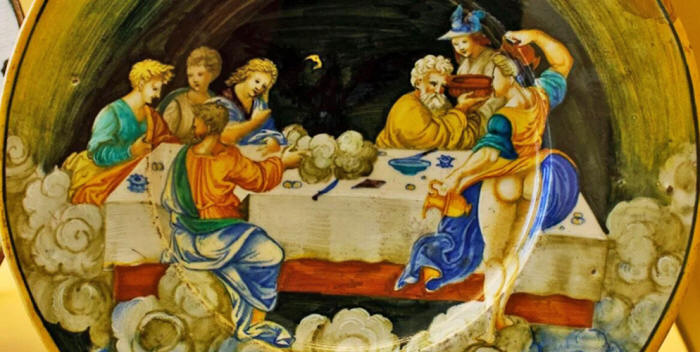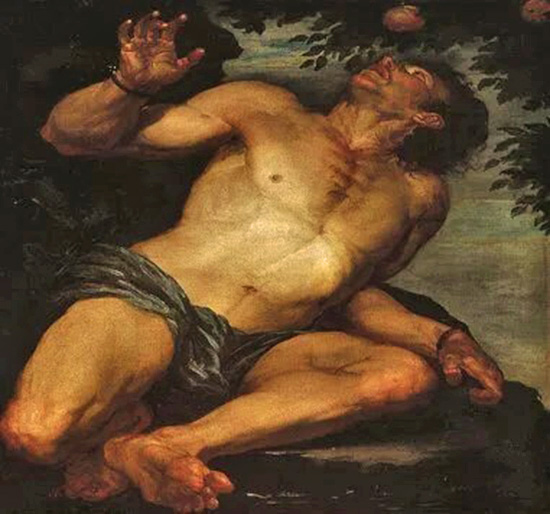|
Contributing Writer
In Greek myth, the mysterious foodstuffs of ambrosia and nectar were the food of the gods; they also played a deeper, more crucial role in the lives of the Olympians.
Ambrosia and nectar were served to the Greek deities by their cupbearers, such as Ganymede, or by Hebe the daughter of Zeus.
Vast quantities of both were consumed at the Olympians' feasts. In general, it was understood that ambrosia was a food and that nectar was a drink, and that they were exceedingly sweet.
There are some sources, however, that argue that nectar was a food and ambrosia was a drink.
Nevertheless, it is widely believed that both were types of honey, although it was also said in ancient times that they were each derived from herbs.
No one knows where
ambrosia and nectar came from, but according to myths they were
delivered by white doves every morning to Mount Olympus.
where the Greeks believed the gods lived
Immortality Consuming ambrosia and nectar was not just for pleasure.
It was believed that when drank or eaten, they turned the blood of the Olympians into a substance known as ichor.
This is shown in the myths to be a divine life force which made the deities deathless. The gods had to consume ambrosia and nectar regularly to ensure that their blood continued to turn into ichor.
If they did not, they would weaken and no longer be immortal.
For example, when Demeter was searching for her abducted daughter Persephone, she did not consume nectar and ambrosia, and her divine powers and immortality faded and then vanished. Nectar and ambrosia was reserved for the gods.
Tantalus was the son of Zeus and a mortal woman, and he tried to steal some ambrosia and nectar to make himself immortal.
He was caught stealing the food and drink of the Olympians, and was banished to Tartarus in the Underworld for all eternity.
There are, however, many instances where mortals were given the food of the Gods and did not become immortal. This is because a copious and regular amount of nectar and ambrosia had to be consumed for a mortal to become immortal.
In one myth, the hero Tydeus was going to be given some ambrosia by Athena.
She stopped, however, when she learned that Tydeus in a rage had eaten the brains of a defeated enemy - a hideous act, making him unworthy of immortality.
Tantalus being tormented in Tartarus
In literature We can also understand ambrosia and nectar by looking at some of the great literary works of the Greeks.
In Book V of the Iliad, for example, when Aphrodite, the Goddess of love, is wounded by the hero Diomedes, her injuries are treated by ambrosia.
Later in the Iliad, we see another use of nectar and ambrosia:
After the death of Patroclus, his body was cleansed with ambrosia, so that it would not decompose Elsewhere in Homer, there are several instances in the Odyssey where wine and food are compared to the food of the Gods.
Even outside of the Greek world, there are many references to the food of the gods in Latin literature, as well as in later works, such as that of the poets of the Renaissance.
Some food people just can't stop talking about...
References
|



